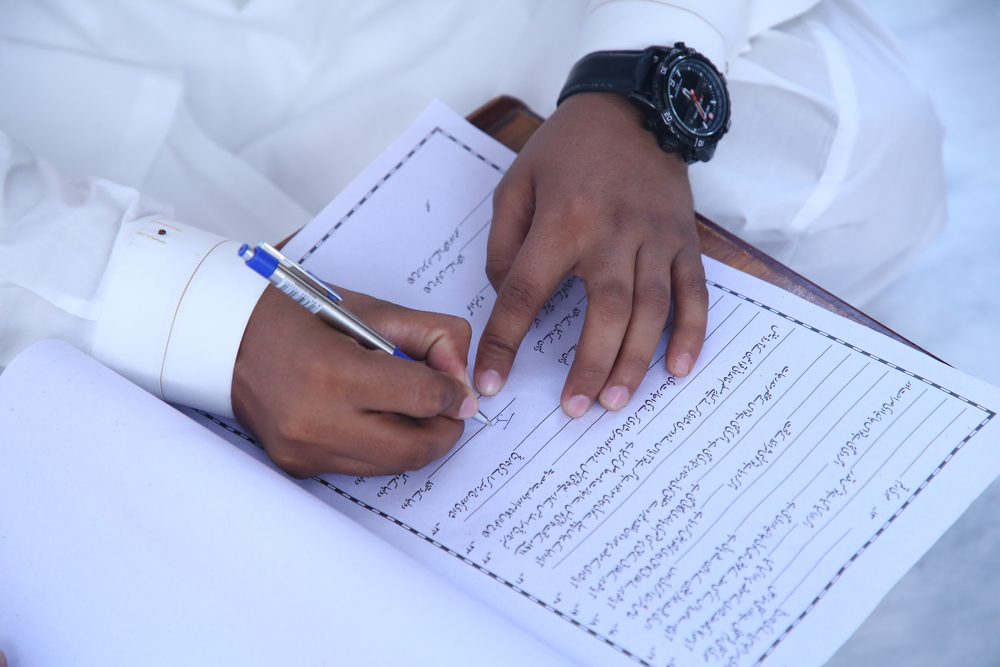Does Verse (4:24) Refer to Temporary Marriage (Mut‘a)?
Answered by Mawlana Ilyas Patel
Question
Does verse 4 in Surat al-Nisa refers to Mut‘a marriage? Can you please explain this type of marriage and the Hadith that forbade this type of marriage?
Answer
In the Name of Allah, the Most Merciful and Compassionate.
I pray you are in good faith and health. Thank you for your question.
Allah (Most High) said, “Also (forbidden are) married women—except (female) captives in your possession. This is Allah’s commandment to you. Lawful to you are all beyond these—as long as you seek them with your wealth in a legal marriage, not in fornication. And whomever of them you enjoy the privileges of marrying, give them their due wages in marriage payment.” [Quran, 4:24]
Seeking Privilege and Benefit (of Marriage)
This part of the verse is not referring to temporary (mut‘a) marriage. The root of the Arabic word (استمتاع/istimta‘) is (ع ۔ ت – م/mim – ta – ‘ain), which means to derive benefit. Any benefit derived from a person or from wealth, property, assets, etc., is called istimta‘. According to Arabic grammar, adding the letters (س/sin and ت/ta) to the root of any word gives the meaning of “seeking.” Based on this lexical explanation, the simple and straight sense of the Quranic expression, “اسْتَمْتَعْتُم” (you have enjoyed), as understood by the entire Muslim umma from the revered companions, followers, and followers of the followers is enjoying the privilege of marriage and consummation of it which in return a full marriage payment is due. But, some Shites state it means the conventional temporary (mut‘a) marriage, and according to its adherents, this verse proves that mut‘a is lawful.
Temporary Marriages
At a particular time in the life of the Prophet (Allah bless him and give him peace), temporary marriages were allowed but later forbidden forever.
“I had made it permissible for you to enjoy women (in temporary marriages), but now Allah has forbidden it until the Day of Rising.” [Muslim]
Countless scholars have cited a scholarly consensus on its prohibition. It is, therefore, unquestionably invalid and sinful. [Ibn al-Mundhir, Ijma‘; Khattabi, Ma‘lim al-Sunan; Maziri, al-Mu‘lim bi Fawa’id al-Muslim]
Some Shites are the only Muslims that allow it, and even much of their legal literature cites evidence against it. Jafar al-Sadiq (Allah have mercy on him) was asked about temporary marriages and said, “The only (women) who do that are the debauched (fawajir).” [Majlisi, Bihar al-Anwar]
Please read the valuable related answers in the links below.
You can search for more related answers on SeekersGuidance Answers.
Related:
- The Ruling of Temporary Marriages (Mut`a) and the Importance of Avoiding Arguments.
- Can You Explain the Concept of Slavery and the Status of Mut’a Practice in Islam?
- What Is Wrong With Temporary Marriages?
Why not begin your search for knowledge by signing up for a course on SeekersGuidance, like Keys to Successful Muslim Marriages?
I pray this helps with your question.
Wassalam,
[Mawlana] Ilyas Patel
Checked and Approved by Shaykh Faraz Rabbani
Mawlana Ilyas Patel is a traditionally-trained scholar who has studied in the UK, India, Pakistan, Syria, Jordan, and Turkey. He started his early education in the UK. He went on to complete the hifz of the Quran in India, then enrolled in an Islamic seminary in the UK, where he studied the secular and ‘Aalimiyya sciences. He then traveled to Karachi, Pakistan. He has been an Imam in Rep of Ireland for several years. He has taught hifz of the Quran, Tajwid, Fiqh, and many other Islamic sciences to children and adults onsite and online extensively in the UK and Ireland. He taught at a local Islamic seminary for 12 years in the UK, where he was a librarian and a teacher of Islamic sciences. He currently resides in the UK with his wife. His interest is a love of books and gardening.
